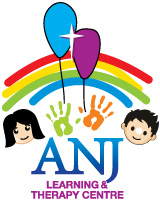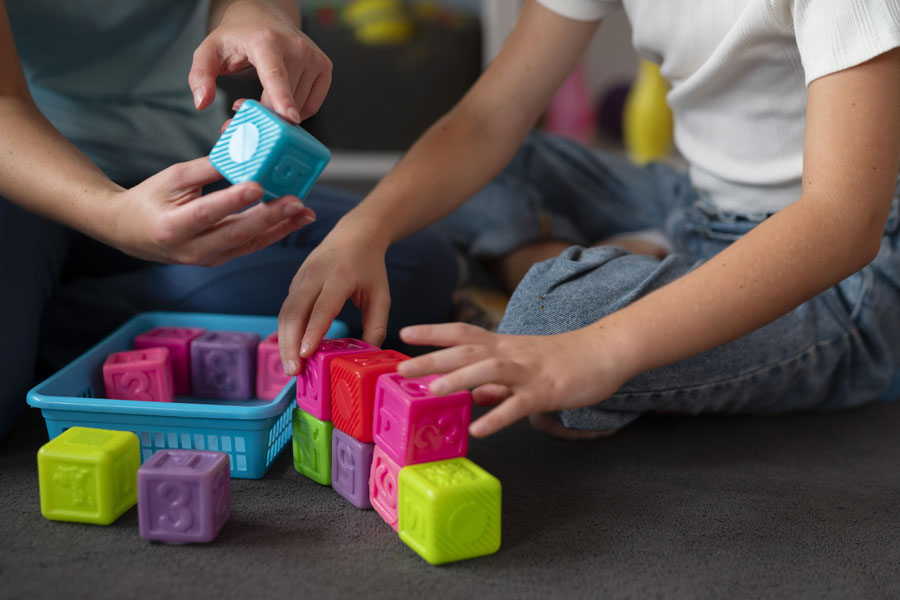- Are you wondering how can you consult a Paediatric Speech Pathologist in Sydney?
- Are you considering whether you should approach a Children’s Speech Pathologist?
ANJ Therapy Sydney provides you with the best solution for speech-related issues for your children. First, let’s understand the need for help. Several children battle with different kinds of communication issues. As children develop some speech problems that are uncommon, such as stuttering, muteness, lisping, or delay in language skills tend to occur. A Paediatric Speech Pathologist (Speech language pathologists or SLPs) is a professional who caters to the needs of these children.
Paediatric Speech Pathologist or Children’s Speech Pathologist
A Paediatric speech language pathologist, is a professional who caters to the communication needs of children, both verbal and non-verbal communication skills. They are trained and equipped to solve different kinds of speech and communication problems in children. Paediatric SLPs aim to prevent, assess, diagnose and provide treatment for these communication-related disorders in children.
What is Paediatric speech pathology?
Paediatric speech pathology is the study and management or treatment of communication disorders, speech problems, language problems and swallowing disorders in the paediatric population or children. It’s not necessary that each and every disorder should involve speech. Other issues like social communication disorders, cognitive disorders, literacy issues, etc., can also be present. One whose expertise is in this field is known as a Paediatric speech language pathologist.
Pediatric Speech Pathologists assist children with these problems to manage and overcome these issues, in order to promote a better quality of life in these children. A Paediatric SLP plays a significant role in the assessment, diagnosis and treatment of autism spectrum disorders.
What are the Settings Paediatric Speech Language Pathologists can work in?
Paediatric speech language pathologists often work in setups such as schools, hospitals, private practices, clinics, where they provide services for different kinds of speech and language disorders, which can be congenital or acquired in their early age due to brain damage, neurological disorders or muscular disorders, etc.
Role of a Children’s Speech Pathologist:
Paediatric Speech Language Pathologists work with all age groups of children, i.e., from infants to adolescents, to help with speech, language, feeding, swallowing and hearing skills. Early interventions to identify and treat speech, language and feeding difficulties in infants and children is of prime importance to Paediatric SLPs.
Now we know that Paediatric speech language pathologist’s goal is to improvise a child’s communication ability; what do paediatric speech language pathologists exactly do – is the question?
Firstly, they conduct an initial screening, which is followed by a thorough assessment, after which the diagnosis of the disorder is made. Then the management/ intervention or treatment of the disorder based on the diagnosis is carried out.
Primary Tasks Carried Out by the Paediatric Speech Language Pathologists
There are three primary tasks carried out by a Pediatric Speech Language Therapist. They are:
Screening and Assessment:
When a child visits the Paediatric SLP for the first time, an initial screening for speech, language or swallowing disorders is done. It includes the Paediatric SLP gathering information about the child’s difficulties, in order to check what kind of difficulties the child is facing. Once the initial screening is completed, a detailed evaluation of the disorder is carried out and the Paediatric SLP arrives at a diagnosis for the disorder.
Diagnosis:
The Paediatric SLP will conduct various diagnostic tests to assess the condition and to give a precise diagnosis for the child’s disorder. Some of the diagnoses that these SLPs commonly run across are listed below.
- Childhood Apraxia of speech is a condition in which children can speak involuntarily, but when asked to speak voluntarily, they can’t manage it.
- Dysarthria is a motor speech disorder in which speech difficulties are manifested as slurred speech usually.
- Spasmodic dysphonia is a voice disorder that involves spasms at the level of the vocal folds.
- Fluency disorders such as stuttering
- Speech sound disorders such as articulation disorders.
- Autism spectrum disorder, and so on
Paediatric SLPs usually treat children who are mute, presenting with a speech and language delay, or dealing with social communication issues related to Autism. The SLP must arrive at a diagnosis before they begin their treatment.
Treatment:
A Paediatric SLP must provide the child and family with counsel on how to manage, overcome and prevent the disorder. Also, a Paediatric SLP must provide services and therapies to treat speech disorders, language disorders and swallowing disorders.

